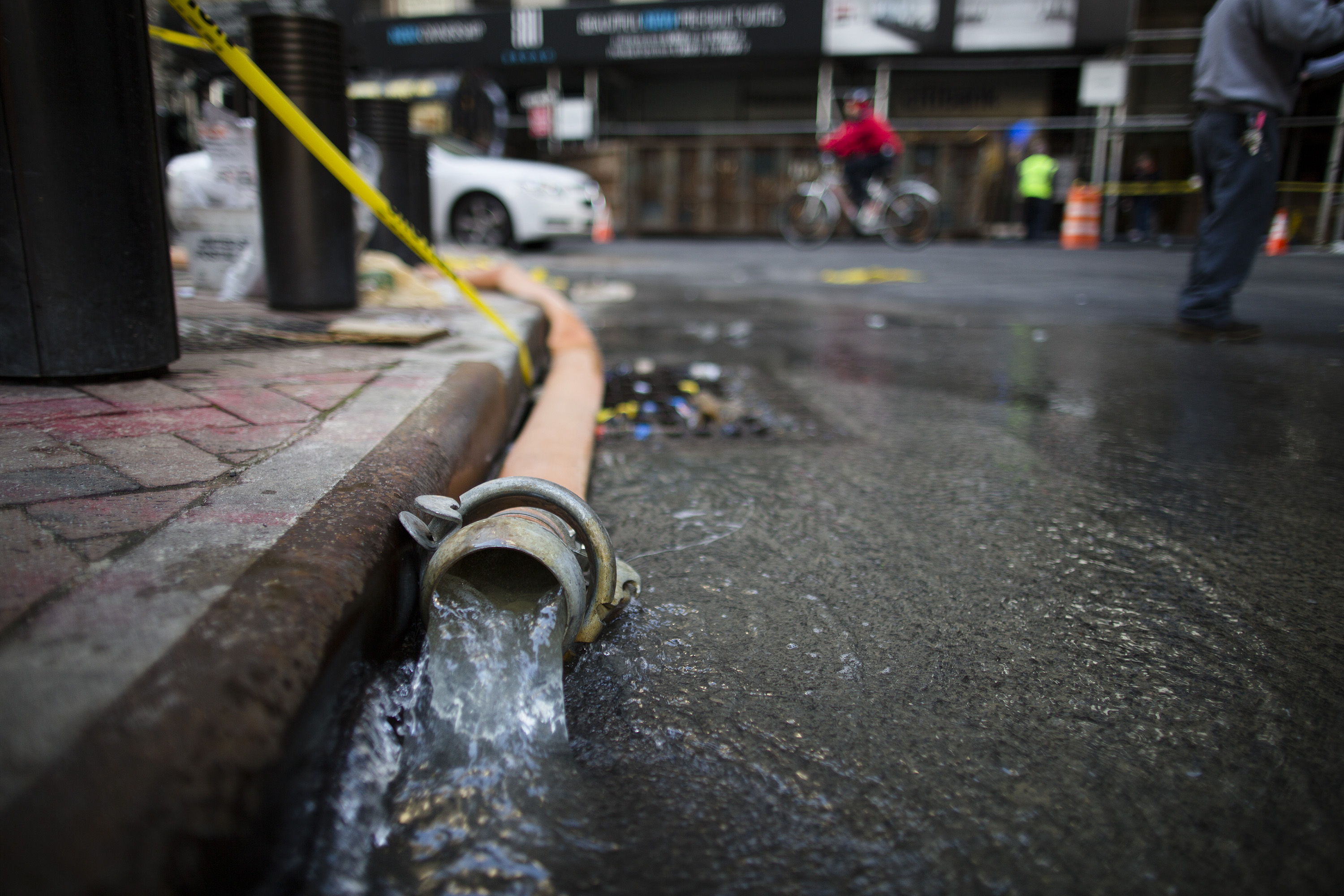Your city might be poisoning you. Literally.
Flint isn't the only city cheating on its water tests


A free daily email with the biggest news stories of the day – and the best features from TheWeek.com
You are now subscribed
Your newsletter sign-up was successful
For my entire professional career, atrocious public policy has meant a continual waste of human potential. The grinding semi-depression that followed the inadequate 2009 stimulus — followed by a ton of Republican-imposed austerity — meant lots of work going un-done while tens of millions of people sat around desperate for work.
Much of those potential jobs could have been in ordinary private sector work, but many others could have been doing urgently needed upgrades to American infrastructure. These include shiny new upgrades to catch us up with Europe — things like high-speed rail and cheap broadband internet — but just as important is simple maintenance of basic services like water, gas, or electricity. Water systems in particular are aging and badly in need of upgrades in many cities across the country, and are one of the easiest ways to get stimulus money out the door. You just tear up the street, replace the pipe, and put the street back together.
But worst of all is when that deferred maintenance could have prevented poisoning. It's one thing when ratty water mains break and have to be replaced at great expense; it's another when old lead pipes are leaching brain-damaging heavy metals into the water. Flint, Michigan, was the most recent example of this, but it turns out that city is probably not alone. That story began with revelations that the local officials had been fudging the lead concentration tests, but a blockbuster investigation by The Guardian found similar practices in 33 U.S cities, including Chicago, Boston, and Philadelphia.
The Week
Escape your echo chamber. Get the facts behind the news, plus analysis from multiple perspectives.

Sign up for The Week's Free Newsletters
From our morning news briefing to a weekly Good News Newsletter, get the best of The Week delivered directly to your inbox.
From our morning news briefing to a weekly Good News Newsletter, get the best of The Week delivered directly to your inbox.
According to the report, this means using tricks like flushing the water and removing faucet aerators (which can lower measured lead levels) and even just throwing out high data points. Chances are good that some people in those cities are drinking dangerous levels of lead — and for no reason at all. Failing to fix these pipes will cost money over the long term, not save it.
To see why, consider one of the commonest tropes in airhead business journalism: a facile comparison between a government and a household. Now, more sophisticated thinkers hate this idea because, unlike a family, a government is (theoretically) immortal and prints its own money. It's doubly ludicrous for a superpower like the United States, since its government debt is literally part of the foundation of the entire world economy. Borrowing in one's own currency, which can be printed at will, gives a government a capacity to mobilize resources far in excess of any individual or private corporation.
However, when it comes to something like lead in the water pipes, an analogy to a household is reasonably illustrative. If you were to discover that the pipes in your house were possibly permanently damaging your family's brains, you would not worry about future savings. Instead, you'd scramble to tap every savings account and line of credit you could get your hands on to get those pipes replaced. Serious problems like that are actually cheaper to fix immediately rather than waiting until expensive medical problems (or crime) develop down the road. "A stitch in time saves nine," as they say.
Of course, some people simply might not be able to raise the money. But the American government is the least cash-constrained entity that has ever existed — and even Republicans implicitly agree. While conservatives have forced it to act like a Dickensian miser when it comes to unemployment insurance or food stamps, they're perfectly fine with casually spending $1.5 trillion on a fighter jet that doesn't work very well and, being human-piloted, is already fast becoming obsolete.
A free daily email with the biggest news stories of the day – and the best features from TheWeek.com
Moreover, every single Republican presidential candidate proposed stupendous tax cuts for the rich that would require trillions and trillions of new borrowing. Nobody (with the possible exceptions of the buffoons at Fix the Debt) seriously believes America "can't afford" to fix every water pipe in the land.
If our broken political system had the slightest lick of sense, seven years ago we would have allocated a few hundred billion bucks to replace every single aging or lead-tainted water system in the country. Instead we're trapped in a whirlpool of idiocy where it only becomes clear how much cheaper it is to prevent one's children from being poisoned by heavy metals after it has already happened.
Ryan Cooper is a national correspondent at TheWeek.com. His work has appeared in the Washington Monthly, The New Republic, and the Washington Post.
-
 The ‘ravenous’ demand for Cornish minerals
The ‘ravenous’ demand for Cornish mineralsUnder the Radar Growing need for critical minerals to power tech has intensified ‘appetite’ for lithium, which could be a ‘huge boon’ for local economy
-
 Why are election experts taking Trump’s midterm threats seriously?
Why are election experts taking Trump’s midterm threats seriously?IN THE SPOTLIGHT As the president muses about polling place deployments and a centralized electoral system aimed at one-party control, lawmakers are taking this administration at its word
-
 ‘Restaurateurs have become millionaires’
‘Restaurateurs have become millionaires’Instant Opinion Opinion, comment and editorials of the day
